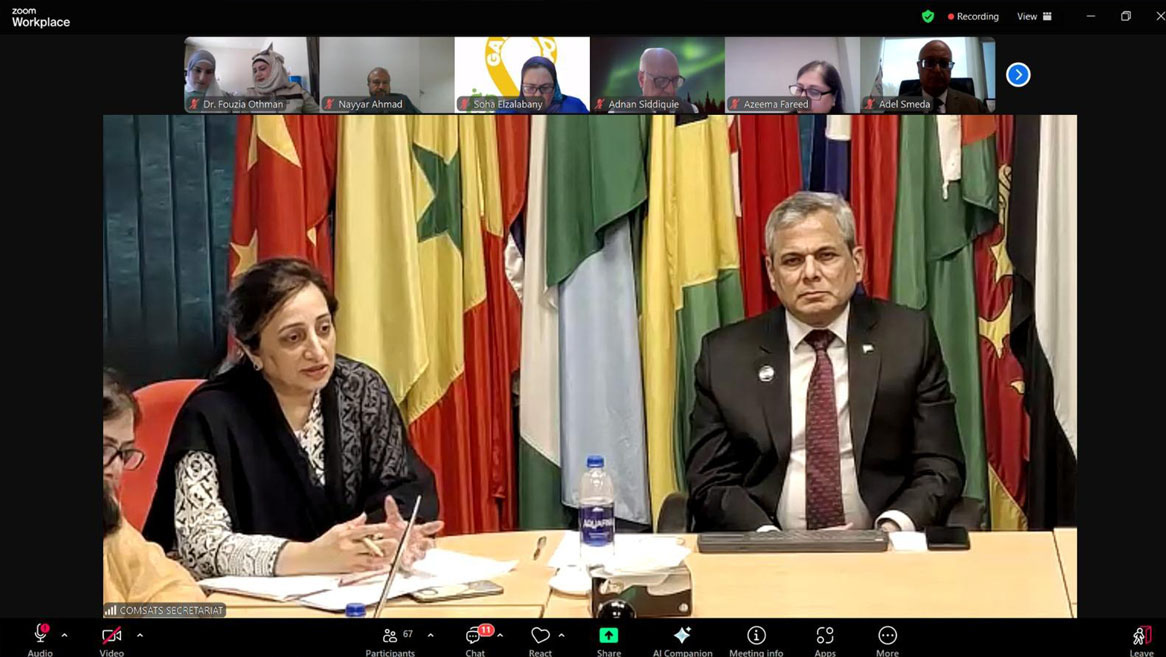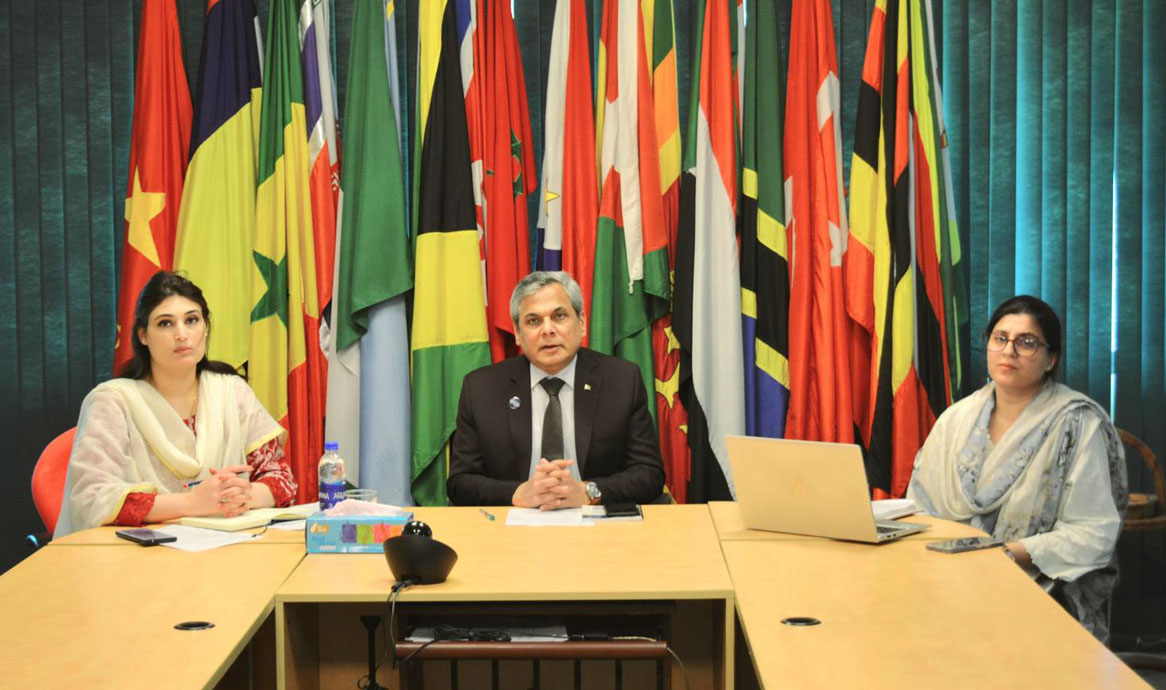COMSATS Center for Climate & Sustainability (CCCS) organized a roundtable meeting on ‘Setting the scene in terms of national priorities, opportunities and challenges to boost bankable Climate Change Projects’ on 16th November 2022. Held on the sidelines of UNFCCC 27th Conference of Parties (COP27) in Sharam El Sheikh, Egypt, the event was organized in collaboration of Islamic World Educational, Scientific and Cultural Organization (ICESCO), Regional Center for Renewable Energy and Energy Efficiency (RECREE), and Egyptian National Commission for UNESCO & ICESCO.
The roundtable meeting aimed to develop and understanding of common challenges in scaling up financing for adaptation in line with national priorities of developing countries. The Panelists shared insights into the barriers that limit utilisation of development funds compatible with Climate resilience needs to support national adaptation agendas and identified opportunities to overcome related constraints.
The panellists of the meeting included experts from ICESCO, Morocco; Regional Center for Renewable Energy and Energy Efficiency (RCREEE), Egypt; Egyptian National Commission for UNESCO, Egypt; Regional Centre for Training and Water Studies (RCTWS), Egypt; International Centre for Advanced Mediterranean Agronomic Studies (CIHEAM), Italy, Resource Future, Pakistan; and Climate Resourcing Coordination Center (CRCC), Pakistan.
The Insights and recommendation from the 3-days training course titled: Mentoring and Coaching for the Identification and Preparation of bankable Climate Change Adaptation & Mitigation Projects (Cairo- 13-15 November 2022) were used as the reference document for discussions on aligning NDCs and climate finance to national development agenda and the role of development finance institutions.
Dr. Sohail Malik from CRCC opened the Roundtable by highlighting the need for strengthened multi-stakeholder cooperation to increase the understanding of the climate context and climate rationale amongst the development planners. Dr. Malik pointed to the challenge of achieving high climate change ambition which requires a minimal complete harmonization to integrate climate change and sustainable development at all transaction levels – within the donor priorities, processes and requirements; in the government policies, strategies, priorities, development planning processes, and procedures.
Prof. Dr. Ahmad Hegazy from Egyptian National Commission for UNESCO stressed that countries have to empower nature-based solutions, particularly the climate-based solutions, by encouraging better negotiations related to trade-offs and benefits between industrial countries and developing countries; this may include capacity building, transfer of knowhow, and domestication of climate smart technologies in different development sectors.
Mr. Khurram Lalani from Resource Future highlighted the priorities for Climate action; building technical capacity to conduct assessments on the economies of adaptation; building support network of decision makers through awareness and sensitization of key issues; investment in climate rationale (data, evidence, feasibility studies, technical studies). He emphasised the significance of developing appropriate adaptation indicators, the log-frame theory of change, and other measures in addition to moving beyond the impact modelling approach. He also highlighted the role of consultations with relevant stakeholders including regulatory stakeholders, Investors/DFIs, consultants, policy stakeholders and implementing agencies.
Dr. Huma Balouch from COMSATS highlighted the potential of South-South financial links and cooperation, which she deemed crucial for investment to support long term development in the developing Countries. She also emphasised the need to increase climate finance for micro, small, and medium-sized businesses (MSMEs) by giving them access to information and building their capacity to identify opportunities where MSMEs can access green finance and take part in the value chains of the green economy.
Dr. Cosimo Tendi from CIHEAM stated that acquiring knowledge and developing skills, and creating an enabling environment are critical for initiating the kinds of climate mitigation and adaptation projects that could draw multi-sector investment from both climate and development financial institutions and providing national revenue streams.
Dr. Manal Al Fawzy Ahmed, Chair UNESCO Man and Biosphere Project, noted that an evidence-based strategy is necessary to ensure funding for combating climate change. Investment in a variety of assets is necessary to enable the shift to a climate-resilient economy in line with the goals set by the Paris Agreement, as is investment that satisfies the humanitarian imperative of social inclusion and poverty reduction.
According to Dr. Foued Alyani, Expert, Science and Technology Sector, ICESCO, combatting climate change requires not just governments’ interventions but partnerships at all levels, including businesses, Inter-governmental organizations, international organizations and civil society. He further highlighted that the main challenge faced in gaining effective access to development and climate finance lies in the constraints of human and technical capacity to meet criteria for donor proposals and reporting requirements.





